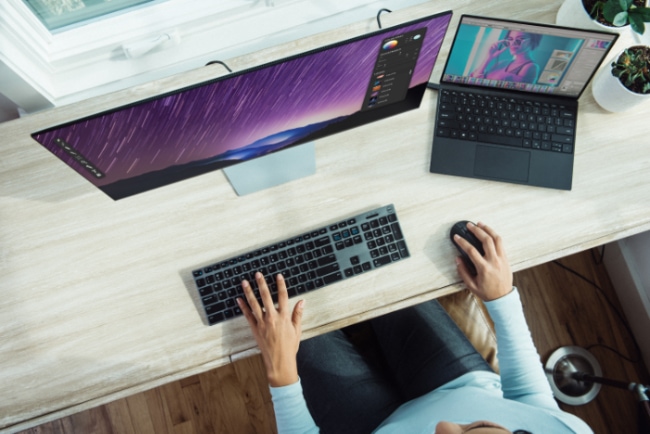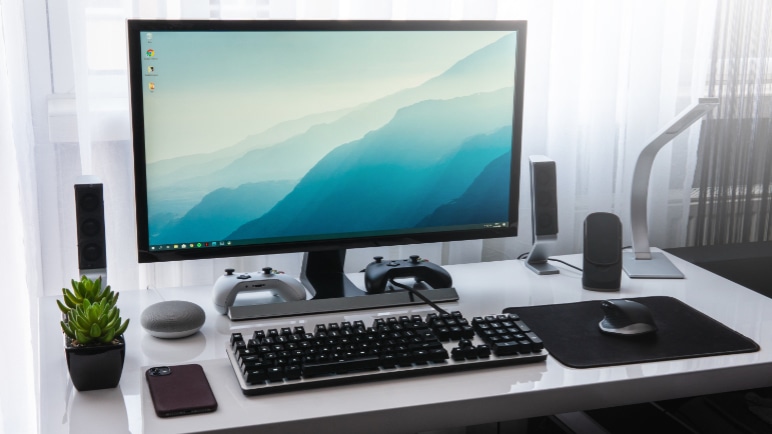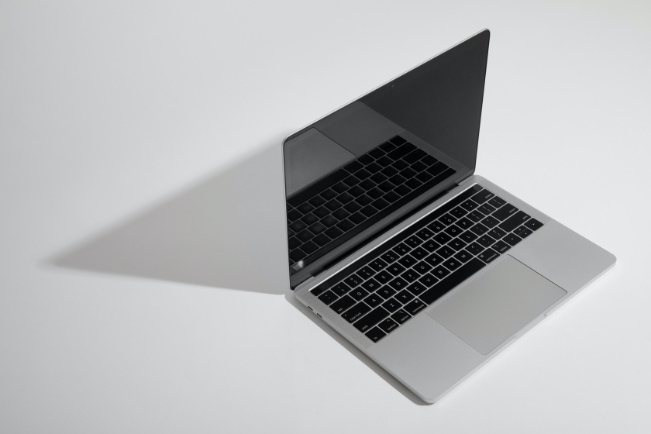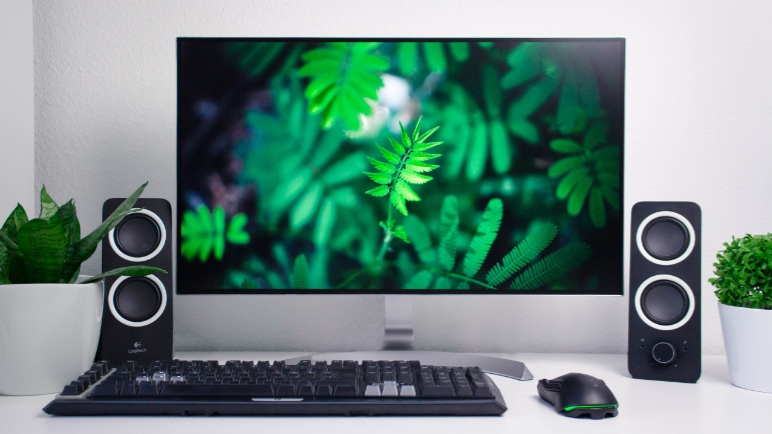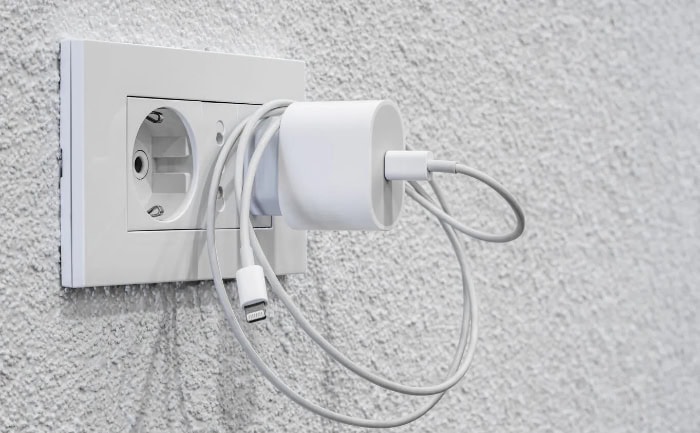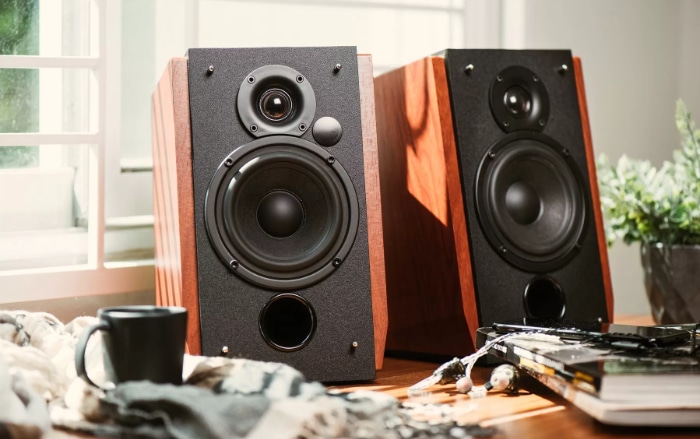Laptop vs. Desktop: Which one do you need?
Which is better, a laptop or a desktop? This question never gets old. It has been a topic of hot debate among tech geeks for years now. Moreover, with laptops becoming more and more powerful, the debate becomes more unsettling.
If you plan to buy a new computer for yourself, you are probably confused between a laptop and a desktop. Your concern is genuine, it happens with almost every person, and they usually do a lot of research before settling for one.
You have probably come to this page to get answers to your unending questions. Well, you have come to the right place. This article will chalk out the difference, pros, and cons of both laptops and desktops. So, buckle down, and let’s get started.
Laptops
The laptops resulted from persistent efforts made around the 1970s to make a compact and portable personal computer. Laptops were made to provide access to technology anywhere and everywhere. Surely, laptops have succeeded in their job, and we can now work anywhere we want.
Laptops are best for students who have to commute to their college regularly. However, with the powerful and lighter versions now available in the market, working professionals are also using laptops.
The best thing about laptops is portability. Our life would have been a lot less productive if there were no laptops.
Can you imagine doing nothing while you commute back from your office and you have a lot of work on your to-do list? Probably not; you might prefer to get over with the tasks on the go and with laptops.
The use of laptops has become so widespread that the terms laptops and notebooks are interchangeably used. However, notebooks are laptops that are smaller and lighter than mainstream laptops.
Laptops incorporate all of a desktop computer’s input/output components and features. The display screen, small speakers, a keyboard, a data storage device, an operating system, a CPU, and memory are all combined into one unit. Instead of connecting with a tangle of cables, you get all the components neatly packed in one unit.
Furthermore, most new laptops come with built-in webcams and microphones, so you won’t have to spend extra money on accessories.
Laptops can be powered by an internal battery or an external power source such as an AC adapter. Hardware requirements, such as CPU speed and memory capacity, vary greatly between different models.
These are the points that people usually consider while buying a laptop because they determine the laptop’s performance.
Desktop
The fully programmable desktops were introduced around the early 1970s. Over the period, desktops have developed into strong electronic devices. The features and capabilities increased, and the size kept on decreasing.
However, desktops are not portable as laptops; they have power requirements, they need to be operated in a single place. Another reason behind the lack of portability is the commendable processing capacity a desktop equips you with.
Usually, you can find desktops in big offices, research labs, or our homes.
However, there has been a massive shift in people’s preferences; the demand for laptops is considerably higher than desktops. That does not imply that the desktops are any less in terms of performance than laptops. In fact, they are a lot more powerful.
If you want a versatile computer, then a desktop is certainly the best option for you. It is capable of storing big files and has got better graphics.
The best thing about a desktop is that it is customizable. You can add to the storage capacity, expand the RAM, add a better graphics card for enhancing your overall computing experience.
This ease of customization sets the desktop apart from the laptop. You cannot customize your laptop even if you invest the same amount. Moreover, the amazing and highly powerful hardware of desktop computers adds to its perks.
In general, desktops outperform a laptop with the same processor type.
Wait, don’t make a decision now; go through the pros and cons of owning a laptop or a desktop and then settle for one.
Pros and Cons of Laptop
Even though laptops have taken over a major market share, they are still not perfect. There are always two sides to a coin, and it is important to consider all the scenarios before making a big investment. We understand that it is a difficult task, that is why we have listed down genuine pros and cons of laptops, have a look-
Pros
There are multiple reasons behind the popularity of laptops, and we have listed all those reasons down here-
Portability
As mentioned earlier, laptops are very compact and portable. They enable you to operate a computer from anywhere. It is an important feature because our lives have become fast-paced, and we need to remain productive at all possible times.
Ease of Use
Laptops are very easy to use, you can just switch them on, and they will be ready to use. Unlike desktops, you won’t need to make multiple settings and space for using it.
As the name suggests, your lap is more than enough for it.
Connectivity
Imagine you are in a café, and you suddenly got a call from your coworker to make some edits to the presentation and share it. What will you do? Well, if you have a laptop, it will just be a matter of few minutes. You can simply make the edits and connect to the café’s WIFI and share it across.
It is excellent how you can connect to the internet if you have a laptop.
Power Requirements
A laptop consumes less electricity than a desktop computer. That is because laptops have smaller components, requiring less electricity to operate.
Moreover, the laptops come with batteries that allow you to use them even without any power connection around. The powerful laptops have about 9-8 hours of battery life, which is more than enough.
Small Screen Size
The screen size of laptops or notebooks usually ranges from 10″ to 17″. The size of the screen is very practical, considering that laptops are portable.
Large screens would have been a problem for carrying around. Moreover, the availability of different screen sizes in laptops provides us with many options to choose from.
Cons
As mentioned earlier, laptops are not all perfect. Therefore, we have listed some of the drawbacks for you-
Upgrade Issues
Besides the RAM and hard drive, laptops don’t have many upgradeable components because most are built-in and not removable. Any update other than the hard drive and memory usually necessitates the purchase of a new laptop.
Cost
If you want to buy a laptop packed with amazing features, you will have to invest a lot more than a desktop with the same features.
Pros and Cons of Desktop
You might have already got some clarity, but we will insist you read the pros and cons of owning a desktop before buying one. We have listed some of them below, have a look-
Pros
The list of pros of owning a desktop is quite long, so we have listed just the main points with a brief description-
Cost
Desktops are cheaper than laptops. You will have to spend just a few hundred dollars, and you will get a full suit desktop, but that is not the case with laptops.
Moreover, the powerful versions are also cheaper than the laptops with the same specifications.
Processing
The processing unit of the desktops is larger than laptops; hence they are more powerful and efficient. Moreover, if you want to have an advanced processor, you will find it on a desktop first.
Ease of Upgrading and Customizability
The majority of components of a desktop are replaceable, making upgrades a breeze.
Furthermore, Desktop cases are larger, allowing you to add and remove hardware, use tools, and manage connections more easily.
A desktop can be made more customizable by adding the required components.
Easy Repair
Most of the hardware for a desktop PC can be purchased off the shelf at any local computer retail store, making it simple to repair.
Cons
The cons of the desktop are listed below-
Space Requirement
A desktop needs a lot of space to be installed. Although some people do not have an issue with space, others prefer a smaller device that can be closed and stored when not in use.
Power Requirement
A desktop needs a high wattage power supply to function. It means that you won’t be able to use your desktop if there is no power source in your proximity.
Final Verdict
After going through all the pros and cons, you must have realized that desktops are way better than laptops in terms of performance. Additionally, they last longer than laptops. However, you have to make a decision based on your requirements.
We suggest you jot down all your requirements and your budget and then look up the list of these pros and cons again. You will be able to make the right decision then.
